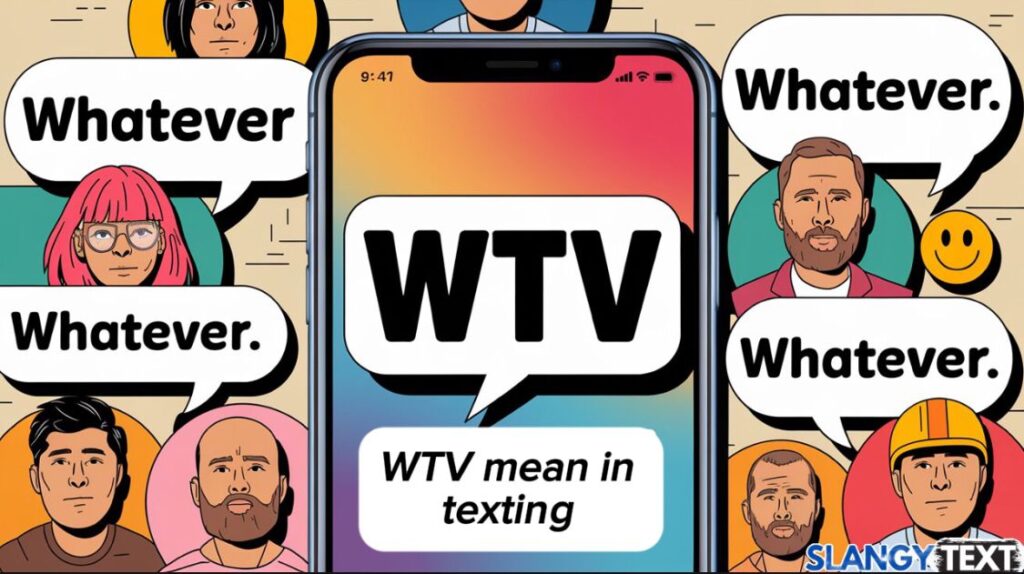In the ever-evolving landscape of digital communication, acronyms and shorthand have become an integral part of our online conversations.
One such acronym that has gained popularity in recent years is WTV. This article delves into the meaning, usage, and implications of WTV in texting-based communications.
What Does WTV Actually Mean
WTV is a texting acronym that stands for “Whatever”. It’s a short form commonly used in text-based communications to express indifference, apathy, or dismissiveness. The use of WTV has become widespread across various social media platforms and messaging apps.
The Evolution of Internet Slang
The rise of social media platforms and messaging apps has led to a significant shift in how we communicate. Abbreviated language and acronyms have become commonplace, allowing users to express themselves quickly and efficiently. WTV is just one example of this trend in modern texting and online conversations.
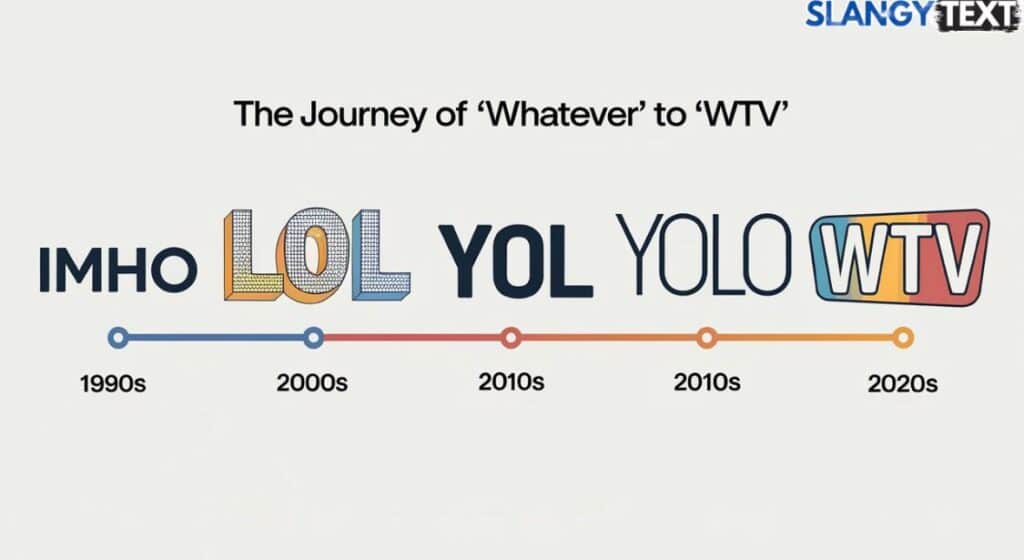
Context Matters When Using WTV
The interpretation and tone of WTV can vary greatly depending on the context of the conversation. Its meaning in conversation can range from casual indifference to outright dismissiveness. Understanding the situational use of WTV is crucial for effective communication.
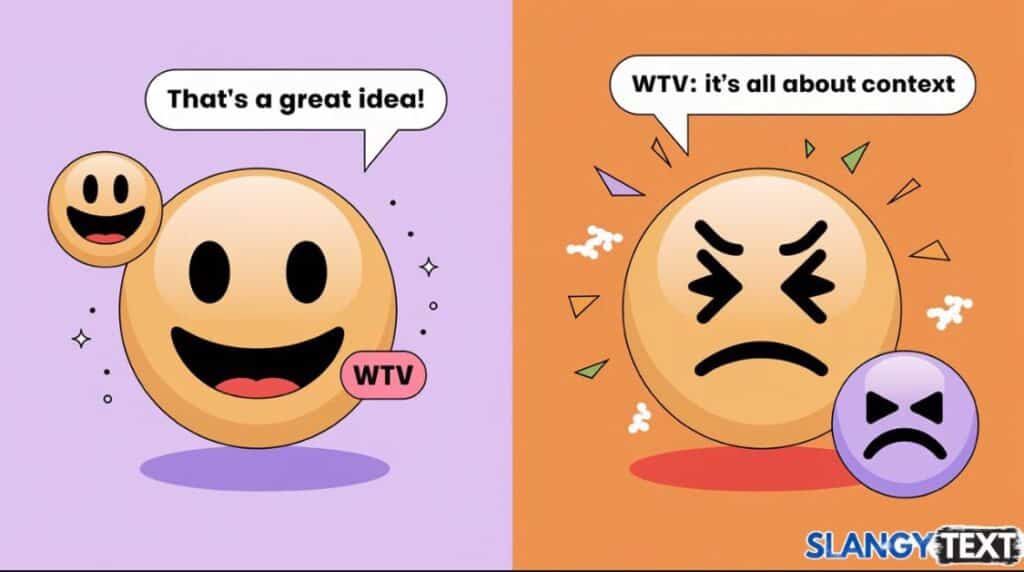
Here’s a table showcasing different scenarios and the potential interpretations of WTV:
| Scenario | Message | Possible Interpretation |
|---|---|---|
| Making plans | “Where should we go?” “WTV, you choose.” | Easygoing, open to suggestions |
| Discussing disagreements | “I think you’re wrong.” “WTV, believe what you want.” | Dismissive, ending the argument |
| Choosing restaurants | “Italian or Mexican?” “WTV, I’m fine with either.” | Flexible, accommodating |
| Deciding on movies | “Action or comedy?” “WTV, I’ll watch anything.” | Easygoing, not picky |
| Responding to criticism | “Your outfit looks odd.” “WTV, I like it.” | Confident, unbothered |
| Dealing with indecision | “Should I buy the red or blue shirt?” “WTV, they both look good.” | Supportive, reassuring |
| Reacting to gossip | “Did you hear about Sarah’s breakup?” “WTV, it’s not our business.” | Uninterested, respecting privacy |
| Handling work assignments | “Can you handle this project?” “WTV, I’ll do my best.” | Willing, but not enthusiastic |
| Discussing politics | “What do you think about the new policy?” “WTV, it won’t affect me.” | Apathetic, disengaged |
| Planning a vacation | “Beach or mountains?” “WTV, as long as we’re together.” | Romantic, prioritizing companionship |
Emotion Behind WTV in Digital Communication
The use of WTV in online conversations often carries an emotional undertone. While it can sometimes indicate indifference or apathy, the true emotion behind WTV is often context-dependent. In some cases, it might be used to express frustration or to deflect unwanted attention.
You might also like : What Does WRD Mean In Texting?
WTV Across Social Media Platforms
The usage of WTV varies across different social media platforms. On platforms like Facebook and Instagram, it might be used more casually in comments or direct messages. On professional networking sites, its use is generally less common due to business formality considerations.
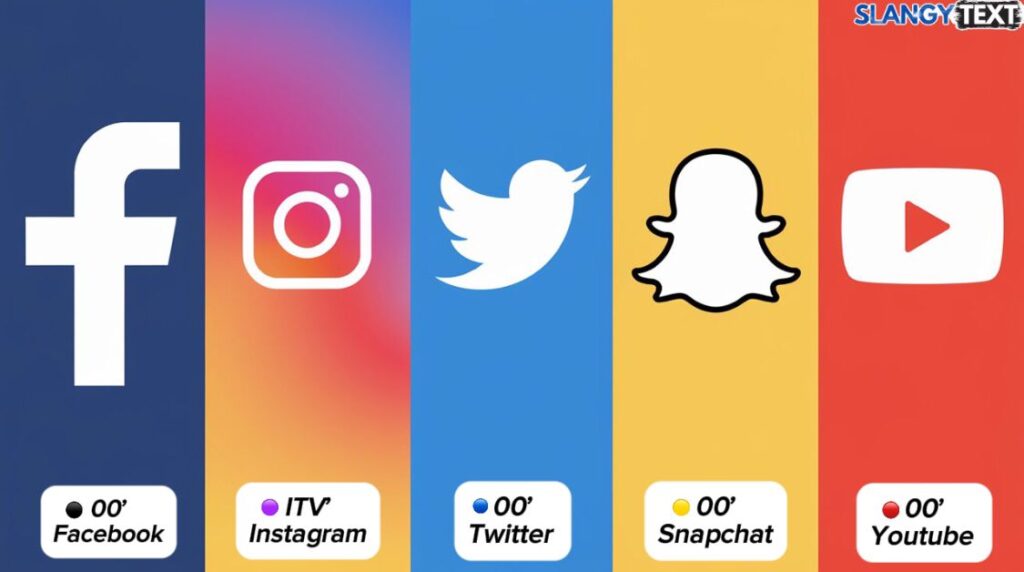
Audience Appropriateness of WTV
When using WTV in text-based communications, it’s important to consider the audience. While it’s generally safe for children and considered parent-friendly, its use in formal settings or educational contexts may be inappropriate. Understanding when and where to use this slang is key to effective communication.

WTV in Professional Settings
In business formality, the use of WTV is generally discouraged. It’s considered too informal for most professional communications and could be perceived as unprofessional or dismissive. In educational settings, its relevance may be limited to discussions about modern language trends rather than as an accepted form of communication.
Also like to know this: What does MK Mean In Texting?
Real-Life Examples of WTV Usage
To better understand how WTV is used in everyday digital communication, let’s look at some quick replays of conversations where it might appear:
Jake: “Hey Sarah, want to grab dinner tonight?” Sarah: “WTV, I’m not really hungry.”
In this scenario, Sarah’s use of WTV suggests a lack of enthusiasm or interest in Jake’s proposal.
Alex: “The new superhero movie looks amazing!” Taylor: “WTV, I’m more into documentaries.”
Here, Taylor uses WTV to express their indifference towards the topic Alex is excited about.
The Impact of WTV on Language Evolution
The widespread use of acronyms like WTV reflects broader trends in language evolution. As digital literacy becomes increasingly important, understanding these shorthand expressions is crucial for effective communication in the modern world.
Also like to know this : What Does YFM Mean In Texting?
WTV and Communication Trends
The popularity of WTV and similar acronyms highlights the shift towards more concise, rapid communication. This trend in abbreviated language reflects the fast-paced nature of online interactions and the need for quick expression of thoughts and feelings.
Here’s a table showing the evolution of “whatever” in communication:
| Era | Form | Context | Communication Medium |
|---|---|---|---|
| Pre-1990s | “Whatever” | Spoken | Face-to-face, telephone |
| 1990s | “Whatever” | Written, spoken | Letters, emails, SMS |
| Early 2000s | “watever” | Written | SMS, early social media |
| Mid 2000s | “wtv” | Written | SMS, social media |
| 2010s | “WTV” | Written | Social media, messaging apps |
| 2020s | “WTV” | Written, spoken | All digital platforms, spoken slang |
| Future | “?” | Unknown | Potential new forms of digital communication |
Also like to know this : What Does ML Mean In Texting?
The Future of WTV in Digital Communication
As language continues to evolve alongside technology, the use and meaning of acronyms like WTV may shift. It’s possible that new variations or entirely new expressions will emerge to convey similar sentiments in even more concise ways.
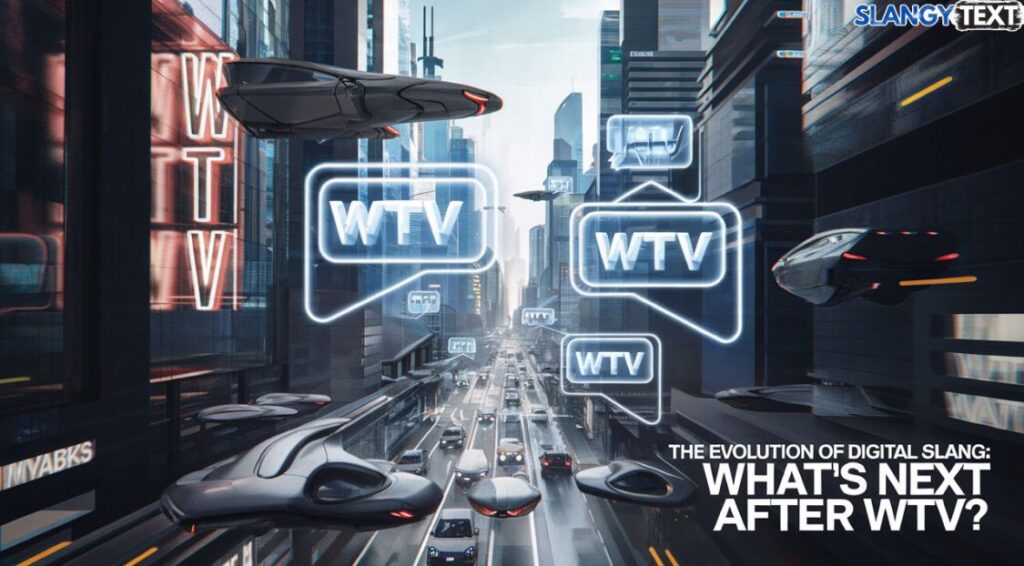
Adapting to Changing Communication Norms
Understanding and adapting to these changes in digital communication is crucial for staying connected in our increasingly online world. Whether you choose to use WTV or not, being aware of its meaning and implications can help you navigate modern texting and social media interactions more effectively.
In conclusion, WTV has become a ubiquitous part of modern texting and online conversations. Its meaning can vary depending on the context, and its appropriate use depends on the audience and platform. As digital communication continues to evolve, staying informed about such acronyms and their usage will be key to effective online interaction.
You might also like : What Does WSP mean In Texting?

Kayla Rogers is a writer at Slangy Text who loves exploring modern acronyms & slangs and how they shapes our conversations. She enjoys sharing fun and interesting articles that connect with readers. When she’s not writing, Kayla likes to keep up with the latest trends or relax with a good book.

